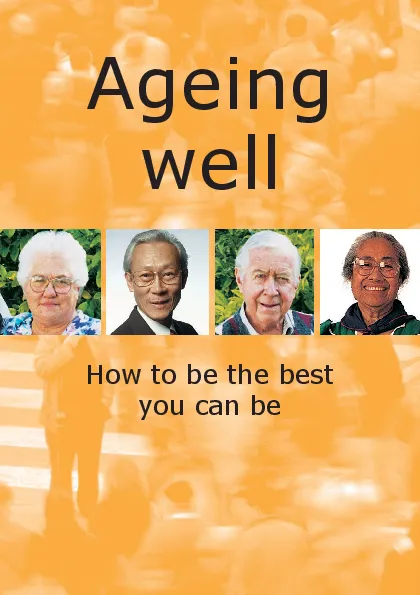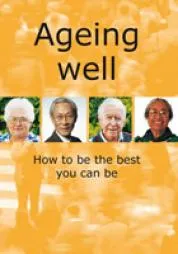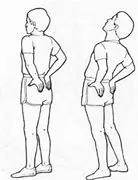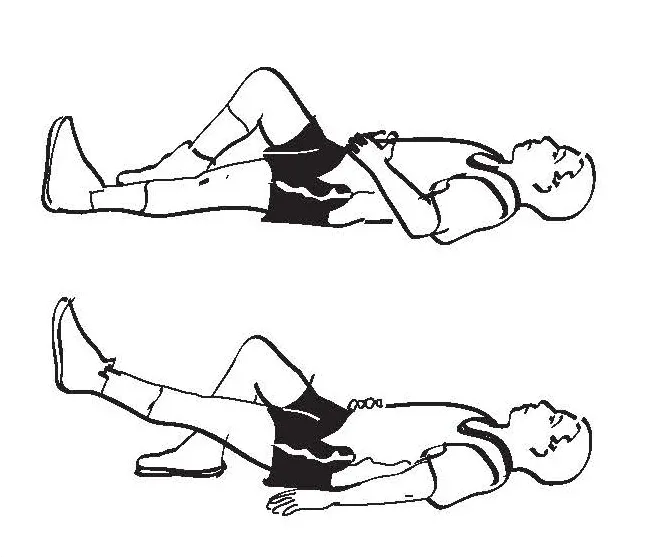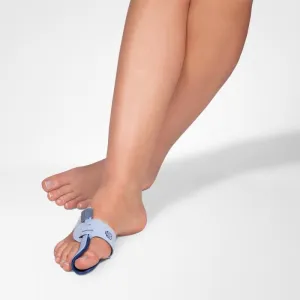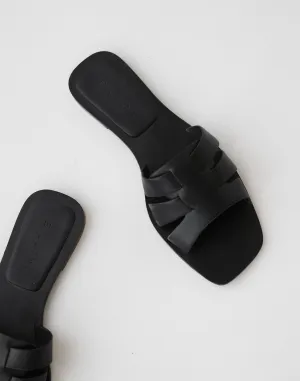How to be the best you can be
Growing old is part of life. Most older people live at home independently and make a positive contribution to the community. Their skills and wisdom are an important resource which society needs. While people do change as they get older, old age is not a time of inevitable mental and physical decline. People can slow down many of the so-called age-related changes.
This booklet focuses on the physical aspects of keeping yourself healthy and safe as you grow older.
The key topics discussed in this booklet are:
- Mobility
- Nutrition
- Sleep
- The senses: hearing, sight, smell
- Oral hygiene
- Foot care
- Skin care
- Screening for cancer
- Bladder control
- Drugs – medicines, alcohol, smoking
- Sexual relations
- Keeping warm in winter
- Safety and security in and outside the home.
Financial security, independence, personal health and safety are certainly factors that determine the lifestyle you have at any age.
The quality of life you have as you get older will also depend on your approach to ageing:
- how well you can adapt and respond to changes
- whether you can maintain confidence in yourself as an individual
- whether you can maintain a sense of humour and fun
- how active you are physically, mentally and socially.
But it is also important for your total health to think about how you can continue to develop the mental, emotional, social and spiritual aspects of your life.
Plan for the future, live in the present.
Keeping mobile
Regardless of age, regular physical activity keeps you fit and makes you feel good. Physical activity increases your heart rate and breathing, the heart and lungs are strengthened and the oxygen supply to the body increases. This means muscles and joints are more likely to be nourished and strengthened and therefore able to work more efficiently. The result is that you have greater mobility, feel more energetic, have better mental well-being and look better, your brain works better, and you possibly have more fun.
If you don't use your body, you will start to lose fitness and flexibility. Because of age-related decline, older people probably benefit more from physical activity than any other age group. However, it is important to do things that you can manage. If you have any medical problems, check with your doctor or nurse before starting or increasing physical activity levels and ask if a Green Prescription is right for you.
Tips for fitness
- Be physically active every day.
- Start off slowly and build up physical activity levels to prevent injury.
The recommended guideline for exercise is 150 minutes per week of cardiovascular exercise. This can be broken up
For example: 5 bouts of 30 minutes exercise per week.
Use your breathing to guide the intensity of the exercise. You should notice your breathing is increased. However, if you cannot speak full sentences, lower the intensity of the exercise. - Practise good posture by distributing the weight evenly on your feet, pulling in your tummy and imagining yourself growing tall. Relax your shoulders and breathe evenly.
- Make your own gentle activity programme.
- Join or form an activity group and enjoy socialising at the same time as being active. Popular choices are:
- walking
- swimming
- aqua aerobics
- line dancing
- cycling
- dancing
- bowling
- croquet
- yoga
- tai chi
- gardening
At the start of the day
Repeat each of these exercises several times while lying down, before getting out of bed.
- Move your feet up and down at the ankles and circle them round in both directions.
- Bend your knees one at a time toward your shoulders.
- Raise your bottom up while keeping your feet flat and knees bent.
- Stretch your arms outwards and upwards over your head.
When you are up, practise walking along a straight line (like walking on a tightrope). If you feel unsteady, it's a good idea to do this by a wall or rail that you can hold onto, if needed.
For sore backs
Sore and stiff backs can be painful and limiting. You can strengthen the muscles which support your spine by the following exercises done twice a day.
- Stand with feet shoulder width apart, breathe out while bending back, supporting your back with your hands at your waist and holding your neck straight.
- Lie on your back with your hands out at the side, bend both knees and lift them to your chest, roll to left and hold then to right and hold, keeping your shoulders on the floor.
- Lie flat on your back and raise one leg at a time as far as you can without straining. Hold for about 20 seconds before repeating with the other leg.
People often feel a bit more stiff and painful first thing in the morning. It’s ok to do your stretches then but some people prefer to do some of their normal routine to warm
up a bit first, like going to the bathroom or having their breakfast. Also check that your mattress is firm enough to support your back.
Protecting your back when you are lifting
- Keep the load as close to your body as possible.
- Use your legs by placing your feet apart, toes forward and knees bent.
- Keep your back straight.
- Pause between each phase, ie, lift (pause), carry (pause), lower (pause).
For information about stretching, walking etc call the 0800 Active line ().
To find out about physical activities available for older people in your area, contact your local Citizens Advice Bureau, gym, pool, community/recreation centre, or look on your library noticeboard.
Use it or lose it.
Eating well
Your metabolic rate slows down as you get older and you probably use less energy than when you were younger. You therefore need fewer calories to maintain the same weight. A balanced, varied diet is essential to give you energy, keep your body strong, and provide protection against illness.
- Eat food from each of these four food groups each day:
- at least three servings of vegetables and at least two servings of fruit
- at least six servings of breads and cereals, mostly wholegrain and high in fibre, e.g.,
- 2 wheat-based breakfast ‘biscuits’
- 1 slice wholegrain bread
- 1 wholegrain roll
- 1 cup cooked rice (try brown rice)
- 1 medium sized muffin
- 2 plain biscuits
- at least three servings of milk and milk products, mostly low- and-reduced fat, e.g.,
- 1 glass of milk
- 2 slices of cheese
- at least one serving of meat, poultry, fish, seafood or eggs or two servings of legumes, nuts or seeds.
- Drink at least eight cups of fluid each day – water is the cheapest and the best.
- Have plenty of high-fibre foods such as wholegrain bread, breakfast cereals such as porridge or wheat-based breakfast ‘biscuits’, vegetables and fruit to help prevent constipation.
- Introduce more legumes (e.g. lentils, split peas and cooked dried beans) into your diet. They are nutritious and high in fibre. Easy ways to do this include having baked beans on toast, making or buying soups with split peas and barley, or adding a tin of lentils to mince dishes.
- Chew food well, and do not have a heavy meal late at night if you want to avoid indigestion. If indigestion persists, talk about it with your doctor.
- Limit the quantity of foods you eat that are high in fat and/or sugar but low in vitamins and minerals, such as cakes, biscuits, sweets and fried foods.
- If you are overweight, increase the amount of exercise you do and reduce the amount of fatty and sweet food you eat.
- If you are underweight, include nutritious snacks as well as your three meals a day. Great snacks include yoghurt, fruit, nuts, peanut butter on toast, a glass of milk, etc. Check your weight with your doctor.
- Plan meals, especially if you are cooking for yourself.
- Take opportunities to eat meals with other people. You may like to try a new recipe and invite others over to share it with you.
- Cut visible fat off meat and use lower-fat foods.
- Don’t add extra salt to foods.
- Keep an emergency supply of foods that will not spoil (e.g. tinned and frozen foods), in case you have a period of time when you can’t get out.
- Try preparing more food than is needed for one meal, dividing the leftover into meal size portions and freeze. Make sure you label with the date and rotate your supply.
For more information about food and nutrition see the Ministry of Health booklet:, available from your public health service, or ask your doctor or hospital services to recommend a dietitian.
Sleep
Many people sleep fewer hours per night as they get older. Some people may only sleep for six to seven hours a night. It’s the quality of sleep that is more important than the
quantity.
The normal sleep cycle is about one and a half hours and there are usually four or five sleep cycles during the night. Each one is made up of two different kinds of sleep.
- Non-rapid eye movement (nonREM) or quiet sleep usually occurs soon after you go to sleep and involves all the bodily functions including brain waves slowing down. The temperature of the body also drops. This type of sleep is important for physical health.
- Rapid eye movement (REM) or dreaming sleep comes at the end of each sleep cycle and involves a lot of brain activity with dreams, twitching, and irregular brain waves. This type of sleep is important for mental health.
Older people have reduced levels of melatonin, the hormone that governs the sleep-wake cycle, and so the time spent in deep sleep may lessen and REM sleep increase.
If you do not sleep well, here are some tips to help you get a good night.
- Keep regular hours – try to get up and go to bed about the same time each day.
- Have some physical exercise each day – even a short walk will help reduce tension and being outside in the sunlight can improve the quality of your sleep.
- If it suits your lifestyle, eat your main meal in the middle of the day and have a light meal at night.
- Avoid tea, coffee, alcohol, cigarettes and other stimulants in the evening.
- Unwind at the end of the day by enjoying something quiet, like listening to music or reading a book.
- Try to set aside cares and worries that haven’t been dealt with during the day. Imagine putting them into an envelope to be opened another time.
- Try not to watch television or use a screen in the last hour before bed. Read, or listen to music or the radio instead.
- Breathe slowly and deeply a few times when you’re in bed, then slowly tighten and relax all your muscles.
- Try not to focus on the fact that you are not asleep.
Sleeping pills are only helpful in the very short term and should not be thought of as a solution to a sleep problem. They can alter your mood, cause loss of concentration and interact with other drugs. You may also find you come to depend on them.
If you are worried about your lack of sleep (insomnia) talk about it with your doctor. You may be referred to a sleep clinic. Insomnia can also be an indication of anxiety or depression, which can be treated.
Hearing
Many older people experience a gradual hearing loss due to ageing changes in the inner ear. The effect of this is a loss of loudness and clarity. Communication with others will be made easier by reducing background noise, having good lighting and keeping a clear view of the face of the person speaking.
Hearing loss can also be caused by other factors, so tell your doctor and have your hearing checked if you have any of these warning signs:
- difficulty with picking out words especially at a distance or when there is background noise
- high notes increasingly hard to hear
- needing to have the television or radio turned up too loud for others
- not always hearing the telephone or doorbell
- ringing or hissing noises continually present.
A hearing aid, if you need one, can be fitted by a qualified audiologist to suit your kind of hearing loss. Today’s hearing aids are highly sophisticated technical devices which can help with a lot of problems. It may take a little time to get used to wearing a hearing aid, but it can make a lot of difference to your quality of life.
For more information on hearing, look in the Yellow Pages for the nearest branch of Hearing New Zealand Te Kahui Rongo o Aotearoa or go to
Sight
Most of us notice a gradual decline in sight as we get older and need to wear glasses for reading and close-up work. Hardening of the lens reduces sharpness of sight, and it may become more difficult to distinguish shades of colour. Older people also have reduced night vision, and this makes it harder to drive at night.
Report any problems with your eyes to your doctor. This includes:
- any heavy discharge from the eyes
- redness or swelling in or around the eye
- loss of sight
- dimness or double vision
- blind spots
- narrowed field of vision.
It’s a good idea to get your sight tested and eyes examined every two to three years. Eye diseases, such as glaucoma, cataracts and macular degeneration that may otherwise go unnoticed can then be treated early. People with diabetes need to be extra careful to manage their condition and should have regular eye screening.
For more information on vision and eye diseases, ask your local optometrist for leaflets produced by the New Zealand Association of Optometrists, or see their website
Smell
The sense of smell decreases with age and you may find you miss out on many aromas and scents you used to enjoy. As well, you may not notice unpleasant or dangerous odours such as:
- ‘off’ food
- gas leaks
- smoke
- body odour.
When you can’t rely on your sense of smell:
- Make sure you always check use-by dates on your food.
- Get smoke alarms fitted to give you warning of fire.
Check batteries monthly. - Have any gas equipment you use checked regularly.
- Be extra careful about personal hygiene and ventilation.
Oral hygiene
Teeth are important for chewing food in preparation for digestion. Whether you have your own teeth or dentures, it is important to keep them and your gums in good condition. A build-up of plaque (a sticky, invisible film containing bacteria) can irritate and infect the gums resulting in loss of teeth. Regular brushing and flossing and an annual check with your dentist are the keys to good oral hygiene.
Gum infections
See your dentist if you have any of these signs of a gum infection:
- your gums frequently bleed when you brush your teeth
- the colour or shape of your gums changes
- you have persistent bad breath or an unpleasant taste in your mouth
- your teeth start getting loose.
Dentures
Dentures which fit well will enable you to chew better and look better.
- Have your dentures checked every five years as they may need adjusting or replacing.
- See your dentist if your dentures are uncomfortable or are making your mouth sore.
- Clean regularly with a brush and denture cleaner or toothpaste.
- Place dentures in a mug of water if you prefer to take them out at night.
For more information about emergency dental care and assistance for people on low incomes, see or find out more from Work and Income at or
Foot care
Healthy feet are important for a full and active life. Many common foot problems result from disease, long years of wear and tear, ill-fitting shoes, poor circulation to the feet, or toenails that have not been cared for.
To maintain healthy feet, podiatrists suggest:
- washing your feet daily and dry well especially between the toes
- trimming your toenails straight across so they are even with the ends of your toes
- inspecting your feet daily for redness, swelling, cracks in the skin or sores
- using a plain moisturiser to keep the skin soft and supple
- resting your feet by putting them up while reading or watching television
- wearing well-fitting supportive shoes
- wearing a clean pair of socks each day
- exercising your feet and toes regularly
- warming your feet slowly if they are cold and protecting them from direct heat
- wearing warm socks or stockings during cold weather, particularly if you suffer from chilblains
- seeing your doctor or a podiatrist if you have an ingrown toenail, any discharge from a nail or corn, or if you cannot easily cut your own toenails.
For more information about foot care, look under ‘Podiatrists’ in the Yellow Pages.
Happy feet make a happy face.
Skin care
As your skin ages it loses its resilience and elasticity and damages more easily. Dry skin, brown patches or broken veins may appear. These changes may be more rapid if you have had long exposure to the sun over many years.
Ways to help keep your skin in good order:
- Use a bland moisturiser regularly on any dry skin.
- Avoid any soaps, shampoos or cosmetics that act as irritants to your skin.
- Use warm rather than very hot water for baths.
- Protect your hands by wearing gloves when gardening.
- Use an approved sunblock (SPF30 or more) when exposed to the sun.
- Wear a sunhat to shade your face when outside.
- Get any unexplained rashes or patches of rough skin checked out.
- Report any changes in moles to your doctor. If cancerous, early treatment is more effective.
- Exercise daily to maintain healthy tissue.
- Drink at least eight glasses of water a day.
Screening for cancer
Screening programmes to reduce the incidence or reduce the deaths from two forms of cancer are available in New Zealand.
Bowel screening
The National Bowel Screening Programme is free for people aged 60 to 74 years. It aims to save lives by finding bowel cancer at an early stage when it can often be successfully treated.
Cervical screening
Regular cervical screening is your best protection against cervical cancer.
You are eligible for cervical screening if you are:
- a woman or person with a cervix;
- aged between 25 and 69;
- sexually active now, or have ever been.
It makes no difference what your sexuality or gender identity is, or if you have not been sexually active for a long time. If you have a cervix, it’s best to get tested.
If you’ve had a total hysterectomy (removal of the uterus and cervix) check with your healthcare provider to see if you still need to have screening.
Check with your doctor, nurse or community health service if you have unusual symptoms at any age.
Breast screening
The chance of women developing breast cancer increases with age. A breast X-ray (mammogram) can detect unusual changes in the breast often before a lump can be felt. This can then be checked to see if it is cancer. Treatment is more likely to be effective if the cancer is found when it is very small.
- If you are 45–69 you are eligible to have free two-yearly screening mammography within the national screening programme, BreastScreen Aotearoa.
Bladder control
Loss of bladder control (incontinence) is not a normal part of ageing. However, it may indicate problems, eg, an infection, constipation, medications, slack muscles, concentrated urine. Whatever the cause, it can mean embarrassment, discomfort and an unpleasant odour.
Ways to maintain good bladder control:
- avoid going to the toilet ‘just in case’
- hold on until you really need to go
- drink plenty of fluids, especially water.
Some of the more common bladder problems are:
Stress incontinence
This is when a small amount of urine leaks from the bladder with sudden movement (eg, jumping, sneezing, coughing). Women are more likely to be affected than men as there is often a weakness in the pelvic floor muscles after child bearing. The muscles concerned can be strengthened with specific exercises.
Irritable bladder
Some people have irritable bladders that want to empty frequently. A retraining programme can get the brain to take control again, by gradually lengthening the time before you go to the toilet.
Prostate enlargement
Men can have urinary problems from the enlargement of the prostate gland, which can cause difficulty passing urine or controlling the flow. For men over 50, it is advisable to have the prostate checked, even if there are no symptoms. Ask your doctor for a test.
Don’t be afraid to ask for help if you have a continence problem. Careful assessment to sort out the cause and find the best solution can mean a real difference to quality of life. Incontinence can nearly always be managed or treated.
Talk to your doctor or practice nurse about exercises to improve bladder control and your pharmacist for further information about continence support.
Incontinence does not signal incompetence.
Drugs – medicines, alcohol and smoking
As you get older your body processes what you put into it differently. This means that you will be more affected by drugs than you were when you were younger. This includes alcohol and tobacco as well as medicines.
Medicines
Older people are more likely to have side effects from both prescribed and over-the-counter drugs. There may also be interaction between alcohol, medicines and other drugs. Sometimes this can lead to falls, depression, confusion.
- Make sure you know what medicines you’re taking, why you need them and whether to expect any side effects.
- Follow instructions on the label and take the amount prescribed.
- Try a 'pill organiser', available from your pharmacy, for keeping a check on your daily tablets.
- The pharmacy can also put your pills into 'blister packs' for a small cost, which is useful for those taking several medicines.
- Check whether you should avoid alcohol or other drugs while taking the medicine.
- Report any possible reactions to medicines, eg, dizziness, indigestion, rashes, to your doctor.
For more information on medicines, talk to your pharmacist or ask for the Age Concern factsheet on medication use
Alcohol
Older people are more susceptible to alcohol-related problems. You’ve probably noticed that as the body ages it is less able to deal with the effects of drinking. The liver is less able to process alcohol. This often means higher blood alcohol concentrations and stronger reactions to heavy consumption. One or two glasses of alcohol occasionally are not likely to be harmful. However, it is not advisable to drink every day.
Heavy drinking can cause diseases of the liver, heart, stomach, and kidneys and problems such as depression, insomnia, forgetfulness, confusion and shakiness. Drinking also increases the likelihood of accidents and falls.
Remember for all of us, regardless of age:
- It is not safe to drink and drive.
- Drinking can affect relationships with other people.
- Alcohol is no substitute for food as it is high in calories and low in nutrients.
- Alcohol can alter the effect of medicines and cause unwanted reactions.
For a guide to the safe amount of alcohol to drink see the brochure available in print from your doctor, Age Concern or Alcohol and Drug Services, or, for further advice contact the Alcohol Drug Helpline freephone
Smoking
We all know tobacco contains chemicals that damage the body and can cause death and disease. The risk of developing tobacco-related diseases is greatest for those who have smoked heavily for a long time. Smokers have a far greater risk of:
- heart attack
- stroke
- lung cancer
- bronchitis
- emphysema
- mouth and throat cancers.
Giving up smoking at any age can significantly enhance your health and reduce your risks of heart disease and stroke. Many older people have also made the decision to give up smoking to protect the health of those they live with or see regularly.
You can get information and help to break the habit if you are a smoker. A national toll-free Quit line is available for help and advice
Sexual relations
Both male and female interest in sex may undergo changes in older age, but most older people can lead an active and satisfying sex life if they want to. As at any other age this is a matter of individual circumstances and preferences.
After the menopause in women, the vagina loses some of its natural lubricant and may feel dry and sore during intercourse. If this happens, ask your doctor to prescribe a hormonal cream. Fear of becoming impotent is sometimes a worry for older men. Talk to your doctor if this is a problem for you.
For good relations with your partner:
- Keep lines of communication open.
- Talk through any problems when they occur.
- Remember touching can give pleasure, but does not have to lead to intercourse.
- Try to make your sex life fun, not routine and boring.
For more information contact Family Planning for advice. See your phone book for contact details or go to
Keeping warm and well in winter
Older people are at greater risk of hypothermia due to reduced activity, less awareness of cold and the effects of some drugs. Living in a cold environment also increases the risk of heart attack, stroke and pneumonia. Influenza can be avoided or at least reduced in severity each winter by having an influenza vaccination in autumn.
- Keep the main living areas at a comfortable temperature between 18 and 22°C. Use a wall thermometer or a thermostat on your heater.
- Make sure you have a supply of fuel.
- Consider putting insulation in ceiling spaces and sealing windows and doors for draughts.
- Regard heat as a health matter and not as a luxury.
- See your doctor about influenza vaccination each autumn.
Keeping safe at home
Everyone's home is different, so it pays to be aware of your surroundings and things that could make your home unsafe.
Reducing the risk of falls
Keeping yourself safe when you move around your home is important. ACC covers several areas of safety at home on their website. For further information, see
Gardening and maintenance
Suggestions for safer gardening and maintenance:
- avoid lifting heavy bags of weeds and compost, or tugging at stubborn weeds
- stand straight or kneel. Avoid bending by choosing long-handled and lightweight tools and using raised beds or planters.
- ask someone else to do routine home maintenance, if you need help
- don't try to move heavy furniture yourself, or to open a window or door that is heavy or stuck
- get help to reach or to do work that is above your head. If that isn’t possible, be sure to use a sturdy step stool rather than standing on a wobbly chair.
- steady yourself when bending down by holding onto something secure.
Bathrooms
Avoid slipping or falling by:
- using non-slip mats in the shower and bath
- having solid grab bars or handrails installed in toilet, bath and shower areas
- using a bath seat and hand-held unit in the shower
- when putting on make-up, shaving, or brushing your hair, use a mirror that can be pulled out towards you.
Lighting
Lighting suggestions:
- use light switches that can be




